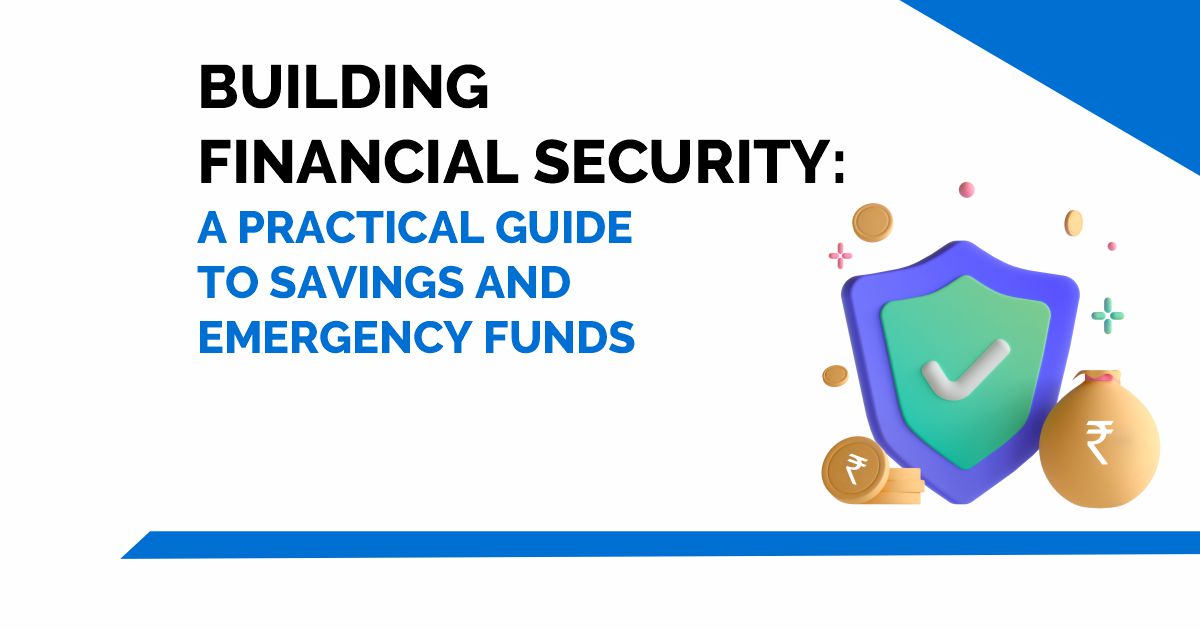If you are planning for a baby, then you must have realized that it is going to be more than just picking adorably tiny clothes and wonderful smelling baby products.
Along with the cuteness and joy, a baby brings with it a new load of responsibilities, life style adjustments and lots of planning! To learn more about essential financial planning, join our course to get a Certification in Online Financial Planning & Wealth Management from Elearnmarkets.
The to-be-parents are faced with a lot of important decision making, and it is very important that they take informed decisions today as they will be building their child’s future on the same.
We will divide out discussion of the finances into two main stages: The pre-delivery stage and the post delivery stage.
The Pre-Delivery Stage:
In the pre-delivery stage, the major concern for the couple is with respect to medical expenses. Since after the euphoria has calmed and the medical expenses start mounting, worry about setting aside the necessary amount for the future settles in the mind.
In order to start, we will first stop the excuses, and prioritize the expenditure, cut-back on the extravagance, and also consciously chalk out a plan of action.
The to-be mother will have several visits scheduled to the gynecologist and most medical covers don’t provide you for this, so be assured that these expenses will be an out-of-the pocket expenditure.
In addition to this, it is very important that the couple starts planning and saving for the future. When the baby comes, there will be medical expenses relating to pediatrician, immunization, care-taker, and of course, emergency funding. In order to avoid the pinch later on , it is smart to start putting aside a small amount from day 1. This can be done by approaching your bank and opening a Recurring account with an amount as small as Rs.500 per month. However, since the plans are more elaborate than your wedding anniversary, Rs.500 per month is surely not going to suffice your expenses.
As the delivery date comes nearer, more expenses will arise like the hospital expense and the celebration budget.
The Post-Delivery stage:
Cradling your baby in your arms, naturally brings to you the dreams, aspirations and wishes regarding its future. So when you plan its future, you will need to not just save, but to invest your money so that it grows with your baby and is enough to pay off the expenses in days to come. Let’s divide your baby’s expenses into categories:
- Medical – immunization in the initial years, followed by regular check-ups.
- Education – From the day care, to schooling to college, education will not be cheap.
- Emergency funding.
Medical – The first sub heading, that is medical expenses can be dealt out of the savings which you already have, it will vary something around Rs.4000-6000 per month. Mind you, these expenses are purely out-of-the pocket expenses and are not covered under any medical insurance or scheme.
- Medical Insurance– After you baby is born, it is a must that you include your baby (within 30 days from birth ) in your Medical Insurance, may it be private insurance or employer sponsored. All you will need to do is approach your agent or your employer, as the case maybe, and fulfil the necessary paper work. Adding your baby to your insurance policy will cost you extra towards premium, but it is a worthy expense.
- Term policy– Another important decision which you as a parent need to make is your Term Insurance or your Life Insurance. There is no plan like the plan which kicks in during adversities. Having a Term Policy will ensure that in the worst case of a parent’s demise, the child and the spouse will at least have financial support to take care of the expenses and debts. This is especially important for parents who have EMIs.
Education- Your child’s education will be a learning lesson for you. The expenses relating to school, tuitions, extra curricular activities like music classes or sport club memberships will in due time cut out a huge chunk of your earning. So instead of letting the expenses crush you, it is better to start providing for it now.
- Junior account- One way of doing it is to open a Junior Account, preferably with the same bank in which you have an account. The advantage of having this account is that after procuring a certain balance, a portion of the balance will be transformed into a Fixed Deposit yielding better interest rates.
- Recurring Account– There is another alternative like opening a recurring account wherein a fixed amount will be transferred from your account to your child’s account and ensure a more disciplined financial allocation.
- Systematic Investment Plan– Also, you may start investing in a Systematic Investment Plan (SIP) so that what you set aside grows on a regular basis and yields higher interest rate.
You will need to look out for the ‘lock-in period’ in these plans and take informed decisions according to your child’s future financial needs.
Besides the above, another important consideration, especially in case of a girl child comes regarding her marriage. There are two specific investment avenues which you can explore for the matter, they are:
- Sukanya Samridhi Yojna , which is an initiative of the Central Government to empower the girl child and give her access to the resources when the time of need comes.
- Gold ETFs– In India, gold is more than just an alternate currency, or a precious metal. Gold symbolizes family pride and has been the central beauty (after the bride) in Indian Marriages. However, we all know it is expensive, so it makes sense to invest in it from early. Instead of procuring physical gold, and undertaking the risk , the formalities and the storage hassle it is better to go for the Exchange Traded Funds. They’re ‘passive investment instruments purely based on the price of gold and invest in gold Because of their direct gold pricing, there is a complete transparency on the holdings’.
Emergency Funding- Above we discussed the main sources of expense for your child. However, pre-planning for an unexpected rainy day has never hurt anyone. Hence, having a fair size of sum set aside for your child’s emergency needs like extra hospital expenses or a sudden vacation or summer school program of which you were unaware earlier, can go a long way in saving you and your aspirations the involuntary compromise. However you must ensure that this bit of the saving is liquid and easy to tear off from the main body when required without hurting the sentiments of the future needs.








